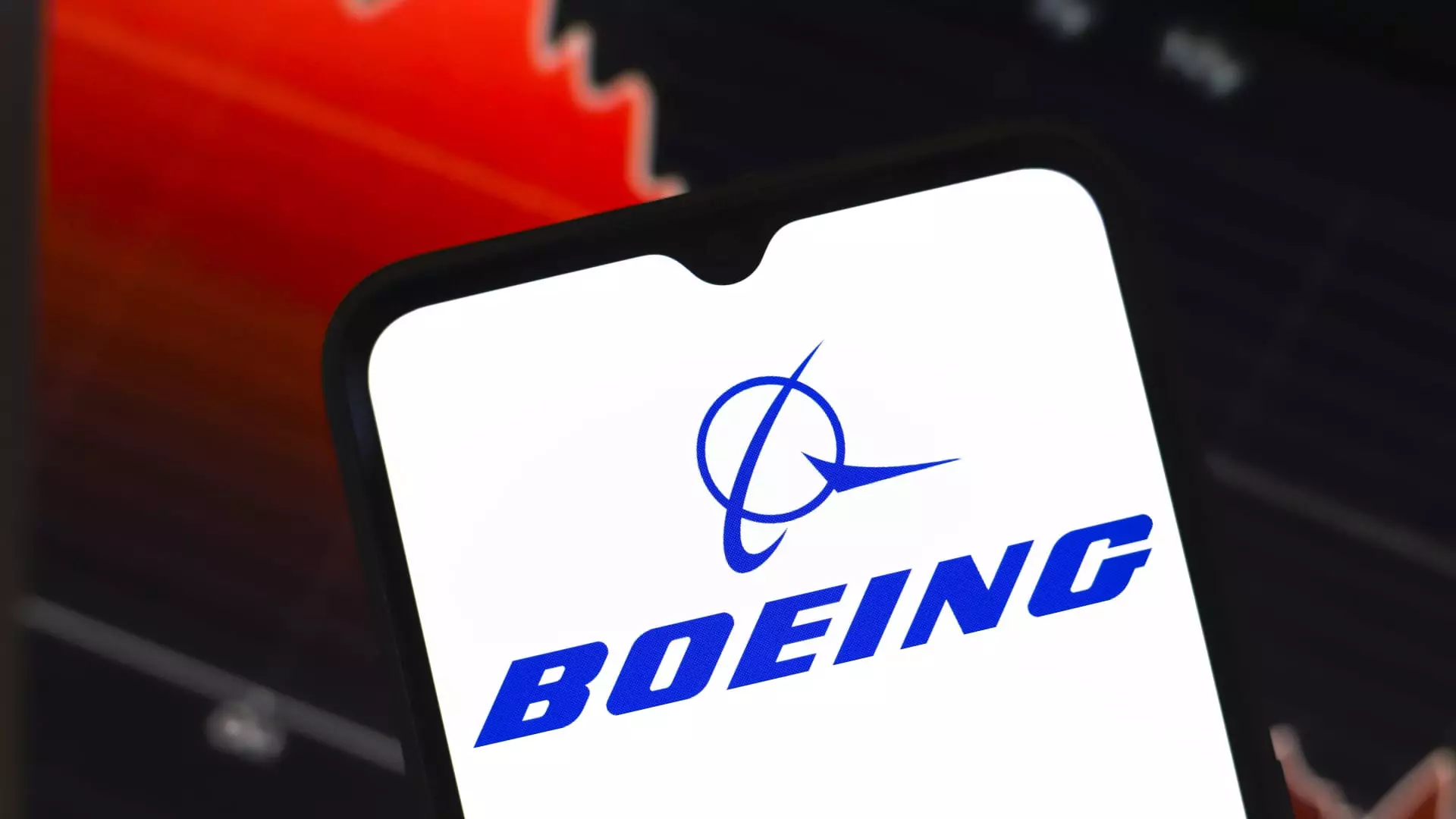In the fast-paced world of stock trading, investor sentiment can shift dramatically based on news reports, earnings outcomes, or even broader economic trends. This was particularly true for Boeing, whose shares plummeted by an alarming 32% last year amid a tumultuous landscape of quality control issues and strikes affecting machinists. Despite this disheartening performance, Tim Seymour, the founder and chief investment officer of Seymour Asset Management, advocates for cautious optimism regarding the aerospace titan. His insights were recently shared during an appearance on CNBC’s “Power Lunch,” as he analyzed Boeing’s recovery potential amidst its turbulent past.
Since reaching a dismal closing low of $138.14 at the end of 2024, Boeing is demonstrating signs of resilience, with a notable 34% increase in its share price coming into 2025. Seymour’s compelling argument centers on the idea that abandoning Boeing now would be a considerable error for investors. While acknowledging the difficulties the company has faced, he believes that Boeing has made significant strides in restructuring and overcoming its previous challenges.
Seymour expressed palpable confidence that Boeing’s upcoming financial outlook is turning the corner, predicting that the aeronautics company might achieve a state of positive free cash flow by 2026. He sees 2025 as a pivotal year for Boeing, likening it to a preparatory phase that will set the stage for the company to unleash its potential as a “free-cash-flow machine” in the subsequent years. His bullish perspective hinges not only on improved operational metrics but also on the broader recovery of the aerospace market, which is expected to rebound as travel demands resurge post-pandemic.
This optimistic viewpoint prompts further examination: how solid are the operational improvements that Boeing is implementing? Investors should evaluate reports on production efficiency, customer orders, and long-term contracts—all critical markers indicating whether the firm can sustain this upward trend. It remains an essential practice to weigh both past failures and future prospects before making any investment decision.
Alongside Boeing, Seymour also highlighted CVS Health—a company that faced a challenging year by ending 2024 with an impressive 43% drop in stock value. However, similar to Boeing, CVS has made waves early in the new year, with a staggering 47% bounce back recorded in its share price. Following a strong earnings report that surpassed analysts’ expectations, the company has showcased a reinvigorated business strategy with promising signs for future growth.
Seymour candidly referred to CVS Health as “a turnaround story,” crediting the fresh leadership of CEO David Joyner, who took the helm in October. Joyner’s strategic adjustments, particularly in Aetna’s health insurance domain, are believed to be significant drivers of this recent renaissance. By effectively maneuvering through tumultuous times, CVS appears to be laying a solid foundation for recovery, reinforcing the idea that not all former underperformers are doomed to fail.
Disillusionment with Intel: A Cautionary Tale
In stark contrast to the optimism surrounding Boeing and CVS, Seymour’s confidence falters when it comes to Intel. After witnessing a staggering 60% decline in stock price in 2024, Intel’s situation is indicative of deeper-rooted issues. Despite a recent uptick following supportive comments from the government regarding artificial intelligence and chips, Seymour remains skeptical. His critique of Intel’s leadership, branding the company as a “rudderless ship,” emphasizes the urgent need for direction and innovation.
This disillusionment serves as a cautionary reminder for investors: strong fundamentals and visionary leadership are essential for long-term advancement within the competitive tech industry. Evaluating a company’s capacity for adaptation and its roadmap to recovery is imperative before committing capital.
While Boeing and CVS demonstrate the potential for recovery in challenging markets, the warning signals surrounding Intel should not be overlooked. The insights provided by Tim Seymour illuminate a broader discussion about the necessity of market analysis, quality management, and innovative leadership in making informed investment choices. Investors must stay vigilant, understanding that the path to recovery can be as complex as the pitfalls that precede it. As always, thorough research and a balanced assessment of risks versus rewards will be paramount in navigating today’s volatile market landscape.

